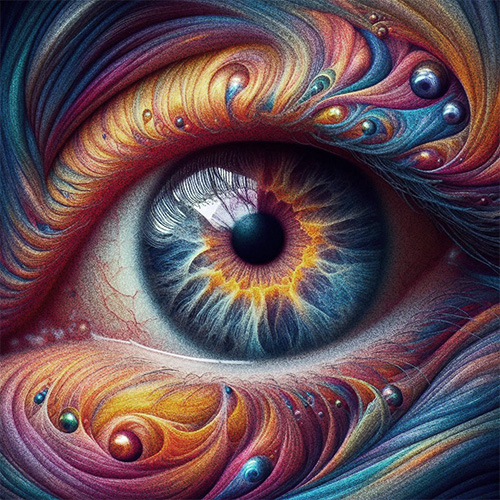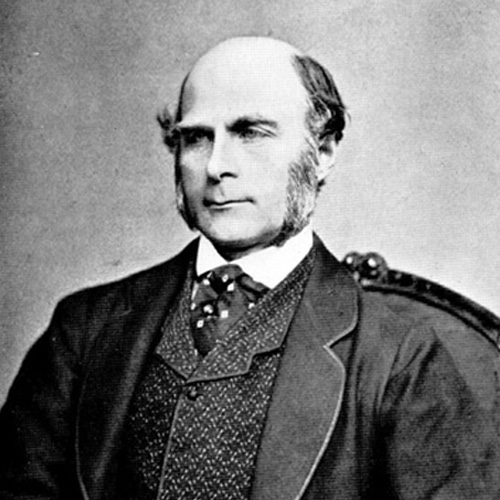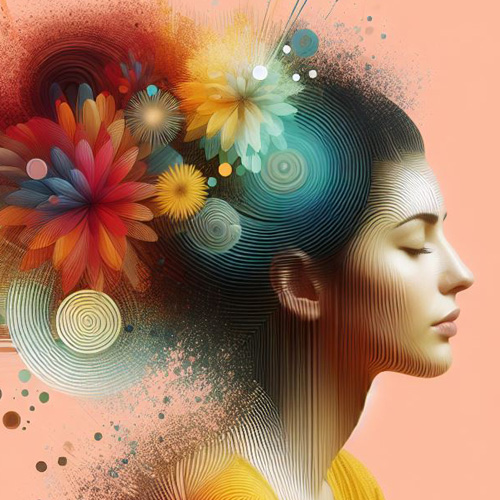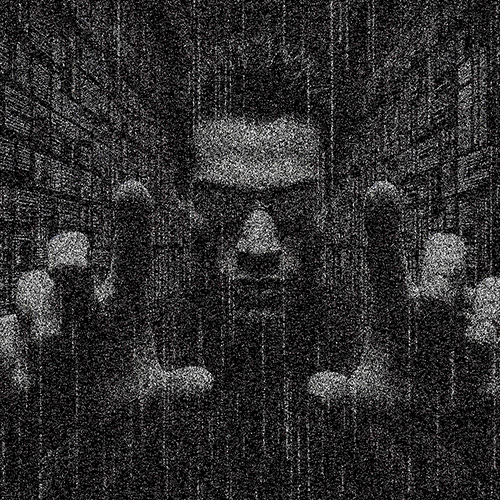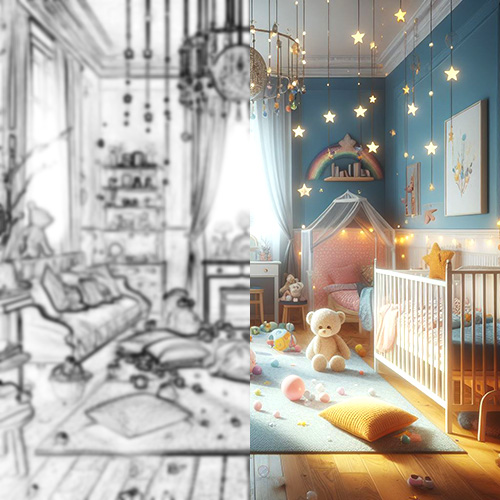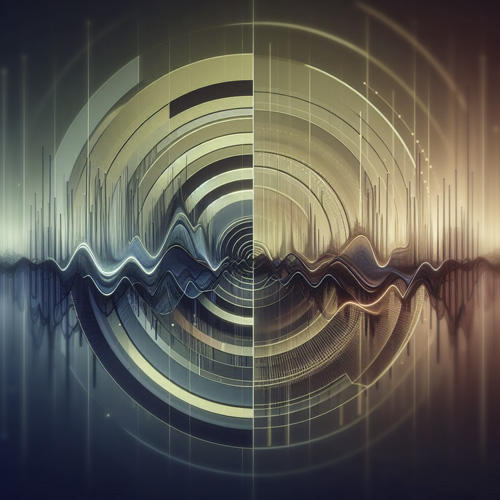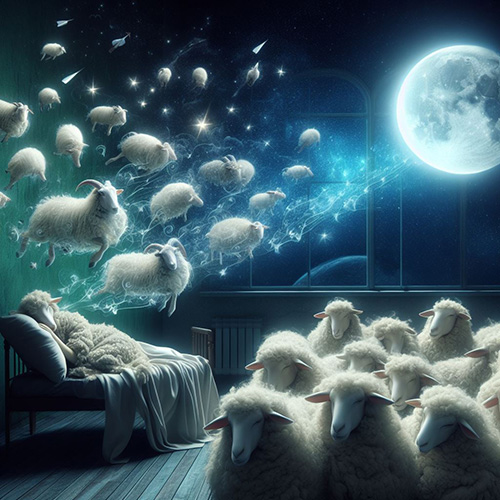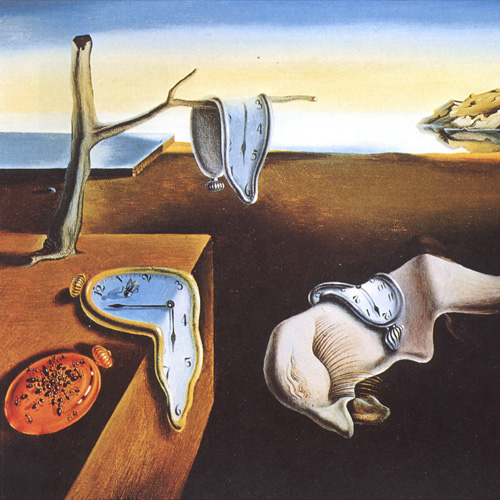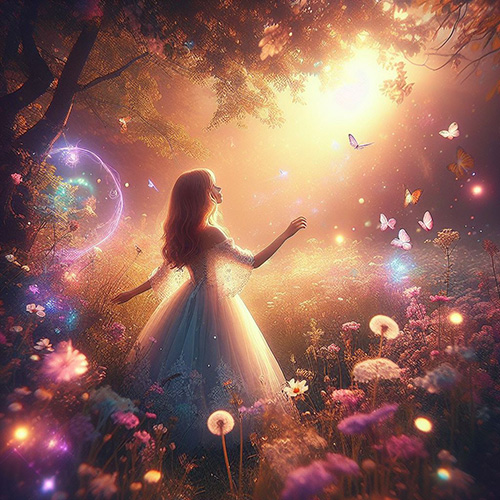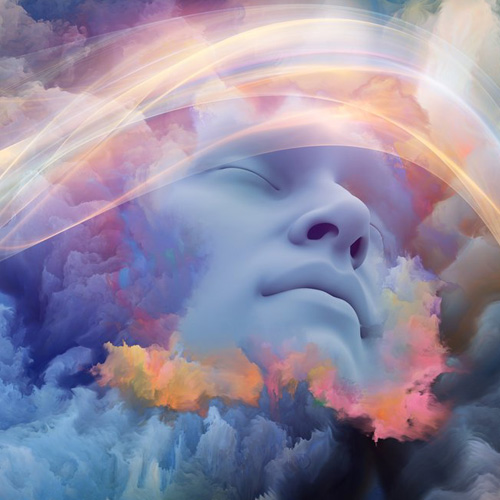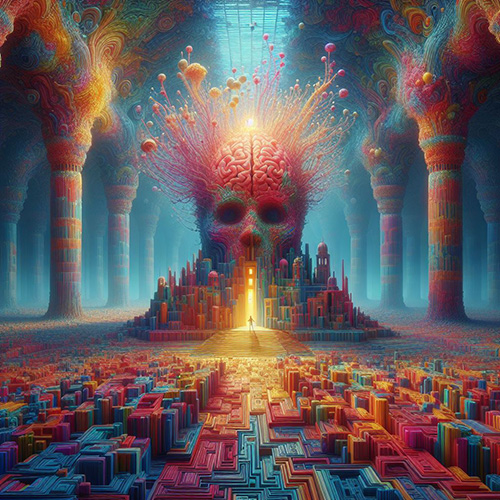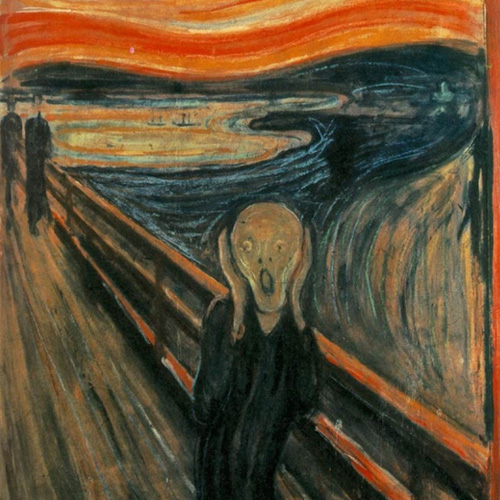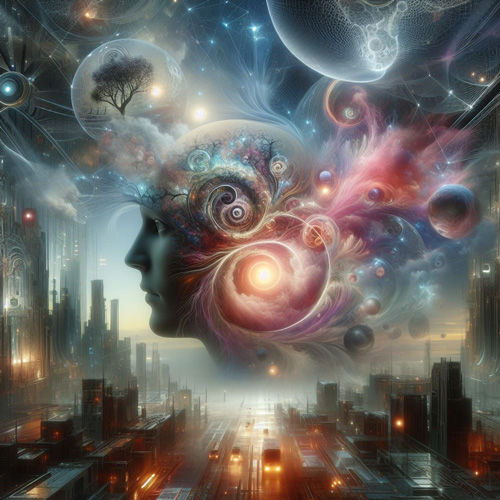Recently, I discovered something that completely blew my mind. It seems most people can see well formed images play out in their mind’s eye.
But some cannot, me included.
“A mental image or mental picture is the representation in a person’s mind of the physical world outside that person. It is an experience that, on most occasions, significantly resembles the experience of perceiving some object, event, or scene, but occurs when the relevant object, event, or scene is not actually present to the senses.”
I can’t believe I have never been aware of this before. It’s astonishing. I always thought this was exclusive to people with a photographic / eidetic memory.
As with anyone who has just discovered this for themselves, I’ve been feverishly researching the topic trying to find out as much as possible.
What is Aphantasia?
“Aphantasia is the suggested name for a condition where one does not possess a functioning mind’s eye and cannot visualize imagery.”
If you’re new to all this I highly recommend reading this study1 by Professor Adam Zeman. There is also some fascinating info in a New Scientist article2 .
Professor Zeman describes aphantasia as not being a disorder or disability, rather “a variant of normal human experience”.
If you’d like to quickly test yourself now, try this questionnaire3 out.
Has this been studied before?
The first time this was studied was by Sir Francis Galton over 135 years ago, who published Statistics of Mental Imagery4 in 1880.
There is a long section in the middle relating to statistics (which I glossed over) but it’s a must read, echoing familiar sounding accounts and astonishment akin to the recent day.
I can certainly relate to the reactions Galton received:
“To my astonishment, I found that the great majority of the men of science to whom I first applied, protested that mental imagery was unknown to them, and they looked on me as fanciful and fantastic in supposing that the words ‘mental imagery’ really expressed what I believed everybody supposed them to mean.”
The study clearly identifies varied degrees of visual clarity amongst the test subjects. It goes on to detail the perceived; quality of light / brightness, clarity of colour, and field of view. One account regarding the latter is quite baffling to comprehend:
“My mental field of vision is larger than the normal one. In the former I appear to see everything from some commanding point of view, which at once embraces every object and all sides of every object.”
An interesting fact: Galton was Sir Charles Darwin’s half-cousin. As you might expect, Galton sent his questionnaire to Darwin. On recalling his breakfast table, Darwin wrote5 :
“Some objects were defined, a slice of cold beef, some grapes and a pear, the state of my plate when I had finished, and a few other objects, are as distinct as if I had photos before me.”
Clearly, Galton and Darwin didn’t have aphantasia.
The ‘mind’s eye’ is not a metaphor?
Until now, I had absolutely no idea that the ‘mind’s eye’ was not simply a metaphorical term for how one perceives memories and visual ideas. In the next section I’m going to attempt to articulate how this happens in my head.
A general feeling I get is that most people seem to have a mind’s eye as described in the opening quote above. However –based on what I’ve learned so far, conversations I’ve had recently, and all the anecdotal comments I’ve read on various articles, videos, and social media posts– it’s abundantly clear there is a scale of capability and intensity.
One fascinating suggestion, mentioned in the New Scientist article2 , is there may be potential to somehow reactivate this sense if, in fact, the mind’s eye of some aphantasics may simply function but unconsciously.
Visualisation
When I think of someone I know, a friend or family member, I have a good sense of their appearance somewhere in my conscious thoughts. This includes their; face, build, eye/hair/skin colour, clothes and style, how they express emotion, walk and gesture, and how they sound.
It’s hard to explain exactly how this is all happening in my mind, so you’ll have to forgive the language I’m using and if this all sounds peculiar.
I do see them, but it’s not a striking visual experience such as looking at an image or film. There is no real detail, quality of light / brightness, or colour representation. It’s sort of like when Neo sees the real Matrix with shapes moving though a spacial dimension, but without all that vivid green computer code stuff.
Apparently, a good test for a mind’s eye is to recall how many windows are in your house. I can easily do this and for previous places I’ve lived in too.
I also correctly answered the shape test from the New Scientist article2 . For me, the answer wasn’t achieved by picturing the object and ‘twisting’ it in mental 3D space. I simply remembered the shape’s features and used logic to determine how the shape was at a different orientation.
Projecting a 3D object into my mind and manipulating it, seems to be something I definitely cannot do.
Some who identify with aphantasia have described their mind’s eye perception to be “black and white” and/or “fuzzy”. This rings true to me, I really grok these analogies.
A mental memory image
Imagine somewhere you used to live, or your childhood room. For me I sense the look and feel of the space, I can even sense objects in there, a bed, curtains, wall textures. It is an image, just not a striking photo-like image. It’s hard to describe but I do sort of see it all in place, but it feels to me like a perceptual form of seeing.
I can also sense how I may have moved around spacial areas in my memory. But these seem to be semantic mental constructions as opposed to the real film-like quality that many folks describe when referring to their memories.
Audio, touch, and smell
The brain is capable of creating other types of mental imagery, in addition to visual images, simulating or recreating perceptual experience across all sensory modalities, including auditory imagery of sounds, gustatory imagery of tastes, olfactory imagery of smells, motor imagery of movements, and haptic imagery of touch, incorporating texture, temperature, and pressure.
In terms of audio, I can hear music in my mind at will and often get earworms. If I think of a track, off my mind goes playing the sounds. This is by no means as rich in fidelity and spacial as actually listening to music, but it’s there. Everyone I’ve asked about this seems to describe this in the same way.
I’ve read some accounts from people with aphantasia who cannot seem to auditorily imagine. Try it now, think of a familiar song to you, maybe Superstition by Stevie Wonder. Can you hear it?
Personally, I cannot seem to mentally touch, taste, or smell anything and find this a bizarre proposition. I know that something I may eat or drink will be savoury, sweet, or sour, but I cannot pre-taste anything with any kind of real sensation.
On being a visual creative
For me the really ground shaking thing about this personal revelation is that I’ve always considered myself a ‘visual person’. I studied Art, Photography, Filmmaking, and Design. My vocation is extremely visual by nature, so this is the case, in an obvious sense. But do people assume a ‘visual person’ fundamentally means a mind’s eye visualiser?
I’m trying to realise if any of this may have shaped my creative work. As far back I can remember, I have never conjured up vivid images in my mind which go on to dictate something I create, or describe.
I’ve always excelled at creating in a more hands-on way, by using my eyes to gather data for processing, i.e, life drawing, experimenting with digital design on screen, physically manipulating, sculpture and layouts, etc. And by conceptualising concepts and ideas semantically.
Another big part of my working life involves the use of logic, i.e, web development / coding, which I really enjoy (most of the time).
Realising I have a mind’s eye which works differently shines a new light on these introspections.
It’s fascinating to think that some creatives completely see a design in their mind first, with colours and detail, then manifest these images as their starting point. There was a comment somewhere by a 3D artist who works in this way.
Clearly to imagine is highly subjective. In my case it seems to be more of a mental process, more of a sense or feeling about something built from experience and understanding of objective reality.
Things have suddenly clicked into place
Throughout life I’ve taken the mind’s eye thing as a metaphor and regarded everyone else to have the same understanding. For example, consider these common expressions:
- “Can’t sleep? try counting Sheep.”
- “Imagine everyone in the audience is naked.”
- “Picture this in your mind.”
- “Are you daydreaming?”
- “That’s exactly how I saw it in my mind!”
- “Sorry, I just can’t picture it.”
- “The book is so much better than the film.”
- “It’s just your imagination playing tricks.”
Given the realisation a mental image can be far more literal, all these things suddenly make so much more sense. I’ve never been able to count sheep, not unless they are all standing in front of me.
It’s also made me realise why my recollection of watched films can be vague in the longer term, and why I don’t get the same realism from novels as many people report. While I read a fair amount of fiction as a child, I tend to be more drawn to factual books these days.
Daydreaming
“Daydreaming is a short-term detachment from one’s immediate surroundings, during which a person’s contact with reality is blurred and partially substituted by a visionary fantasy, especially one of happy, pleasant thoughts, hopes or ambitions, imagined as coming to pass, and experienced while awake.”
I’m starting to realise that I’ve never daydreamed as people seem to define it. When I let my mind wander I may be thinking or imagining a hypothetical situation, future event, etc.
I can even project in my mind what peoples’ reactions may be, how they may act, vocalise something, or laugh, etc. This is what I thought daydreaming was.
“What is a television apparatus to man, who has only to shut his eyes to see the most inaccessible regions of the seen and the never seen, who has only to imagine in order to pierce through walls and cause all the planetary Baghdads of his dreams to rise from the dust.” ~ Salvador Dalí
To learn that some people can visualise so vividly while conscious sounds incredible. It certainly makes me feel I am missing out on something quite special about the extent of human consciousness.
Dreams
Throughout my life I’ve had countless dreams, nightmares, reoccurring dreams, bizarre surreal dreams, and even two frightening sleep paralysis experiences.
I remember dreams fairly often. If I’m consciously thinking introspectively during the day, my dream recollection seems far more frequent.
Interestingly, the recollection of my dreams is the same as with any other memory, in that it’s not the same visually as conscious seeing or the experienced dream itself, but when my dreams are happening they feel as real as waking consciousness – if that makes sense.
Of note, my dreams are always in the first person perspective. I read a comment where someone described their dreams as being third person. That sounds unusual, is it common?
“I dream my painting, and then I paint my dream.”
~ Vincent Van Gogh
If an aphantasic can dream, perhaps the mind’s eye is simply functioning unconsciously and for some reason there is no conscious access it. Or are these brains simply wired differently?
Are Aphantasia identifiers at a disadvantage?
I would say maybe there are disadvantages, especially when it comes to memory.
Personally speaking, my memory is okay but not great. This may be down to a number of factors, i.e, age, genetics, the sheer volume of new content modern life can subject us to, etc. But I can’t help wondering if perhaps aphantasia plays a role too. My procedural memory is very good, but I don’t consider extraordinarily so.
I’ve tried memory techniques in the past, like associating phrases or words to visual cues. This works for me, however I’ve always been curious how people can access a ‘mind palace’. I thought this was only possible by those with a photographic memory?
It would be interesting to find out more about these correlations.
Are there any advantages?
From the extreme end of the scale, referred to as Hyperphantasia, then perhaps there are advantages to a blind mind’s eye. For example there are some accounts where people report never being able to “switch-off” their imagination which may be detrimental for concentration or getting to sleep.
PTSD sufferers’ constant recollection of disturbing memories is clearly incredibly distressing to live with. Are these people more prone to Hyperphantasia –or– have their experiences actually caused hyper mind’s eye sensitivity?
How does it make you feel?
I think this revelation can leave one bewildered at first and feel lacking in a common human sense. Is this really how it is? I mean do people really have access to limitless clear and detailed images in their minds? It seems that way.
While it may be taken for granted by those who can visualise, those who have difficulty may naturally find it sobering and even a little depressing to be missing out on the fun, entertainment, and crucially – the practical uses this sense indubitably provides.
I’m still trying to get my head around all this, it’s the strangest personal revelation of my life.
Conclusion
After much research and contemplation, I’ve come to conclude that I’m most certainly at the lower end of the visualisation scale. I absolutely have a ‘mind’s eye’, so I can visualise things. But it’s perceptual, the imagery is constructed semantically, being vague and absent in detail, colour, or striking similarity to actual vision.
It’s been fascinating to learn about other people’s amazement regarding this remarkable subject, on both sides of the coin. My interest in human consciousness has profoundly deepened and I’ll continue to pursue further enquiry at every opportunity.
References
[ 1 ] Can’t count sheep? You could have Aphantasia – University of Exeter
https://news-archive.exeter.ac.uk
[ 2 ] My mind’s eye is blind – so what’s going on in my brain?
https://www.newscientist.com
[ 3 ] Vividness of Visual Imagery Questionnaire
https://aphantasia.com/study/vviq/
[ 4 ] Statistics of Mental Imagery – Francis Galton
http://psychclassics.yorku.ca
[ 5 ] Late Style and its Discontents: Essays in art, literature, and music
https://books.google.co.uk
Definition & Pronunciation
Aphantasia /ˌeɪfanˈteɪzɪə /
The inability to form mental images of objects that are not present.
‘if counting sheep is an abstract concept, or you are unable to visualize the faces of loved ones, you could have aphantasia’.
Further info on Aphantasia
Aphantasia Network
https://aphantasia.com
Aphantasia: A life without mental images
http://www.bbc.co.uk
Find Aphantasia on Social Media
Reddit
https://www.reddit.com/r/aphantasia
Aphantasia Awareness Facebook Group
https://www.facebook.com
Videos on Aphantasia
A short BBC News report feat. Prof. Zeman
https://youtu.be
Aphantasia: Tamara Alireza [TEDx]
https://youtu.be
Blind Mind’s Eyes
https://youtu.be
Can You Visualise This? : PBS BrainCraft
https://youtu.be
New Insights Into ‘The Mind’s Eye’ [PBS SciShow]
https://youtu.be
Related Info
Sir Frances Galton
https://en.wikipedia.org/wiki/Francis_Galton
Professor Adam Zelman
https://medicine.exeter.ac.uk/people/profile/index.php?web_id=Adam_Zeman
Mental Image
https://en.wikipedia.org/wiki/Mental_image
Creative Visualisation
https://en.wikipedia.org/wiki/Creative_visualization
Fantasy prone personality
https://en.wikipedia.org/wiki/Fantasy_prone_personality
Counting Sheep
https://en.wikipedia.org/wiki/Counting_sheep
Publisher Info
- Published: Friday 22nd December 2017
- Re-published: Wednesday 6th March 2024
- Updates: I've minimally updated this essay, mainly with new images (some created with DALL·E 3) and to fix broken links. The original was published on my previous website.
- Usage: Please feel absolutely free to link to this article and kindly let me know if you do!
- Author: Jamie Brightmore ©2017
- Affiliations: None
- External links are detailed in the Privacy Policy
